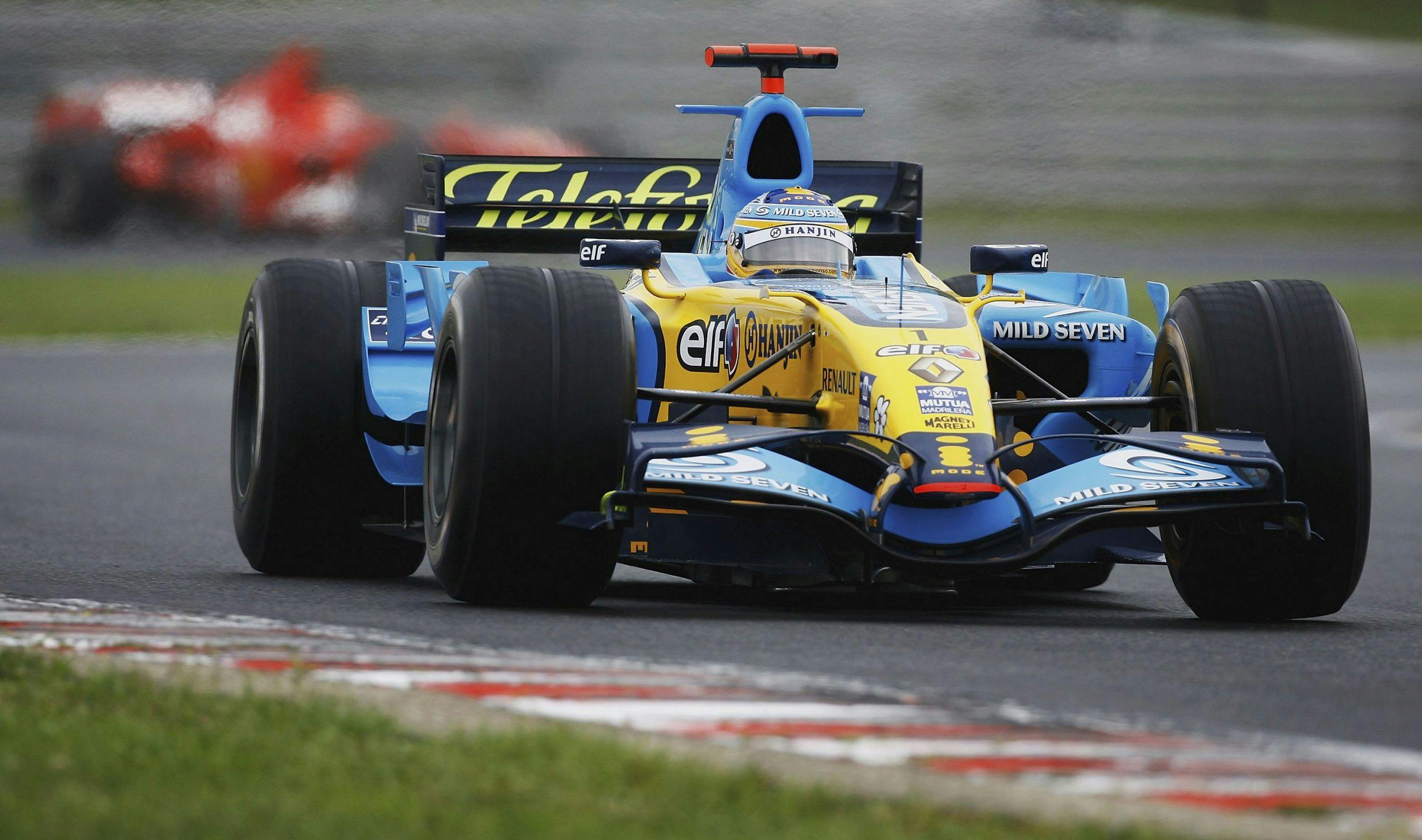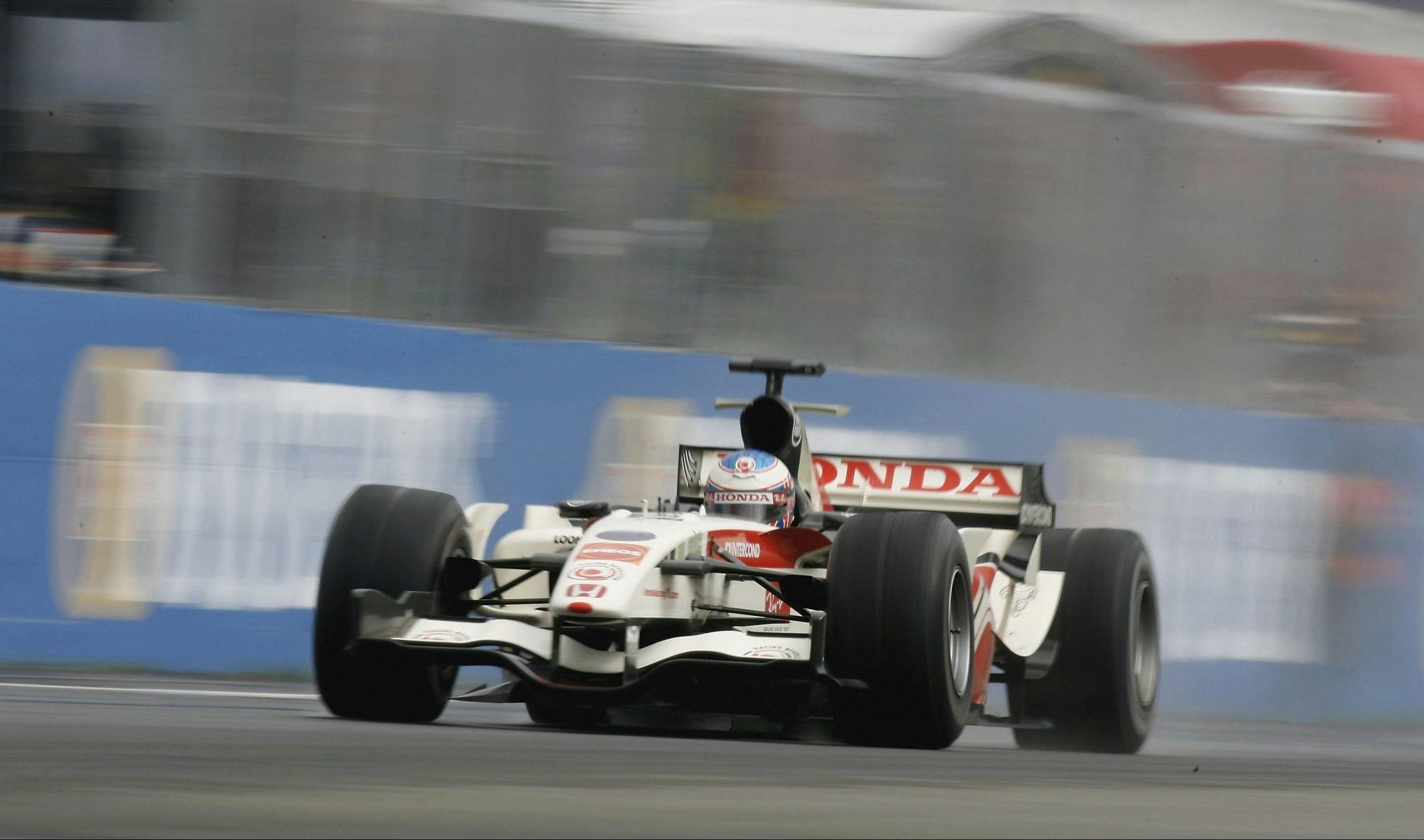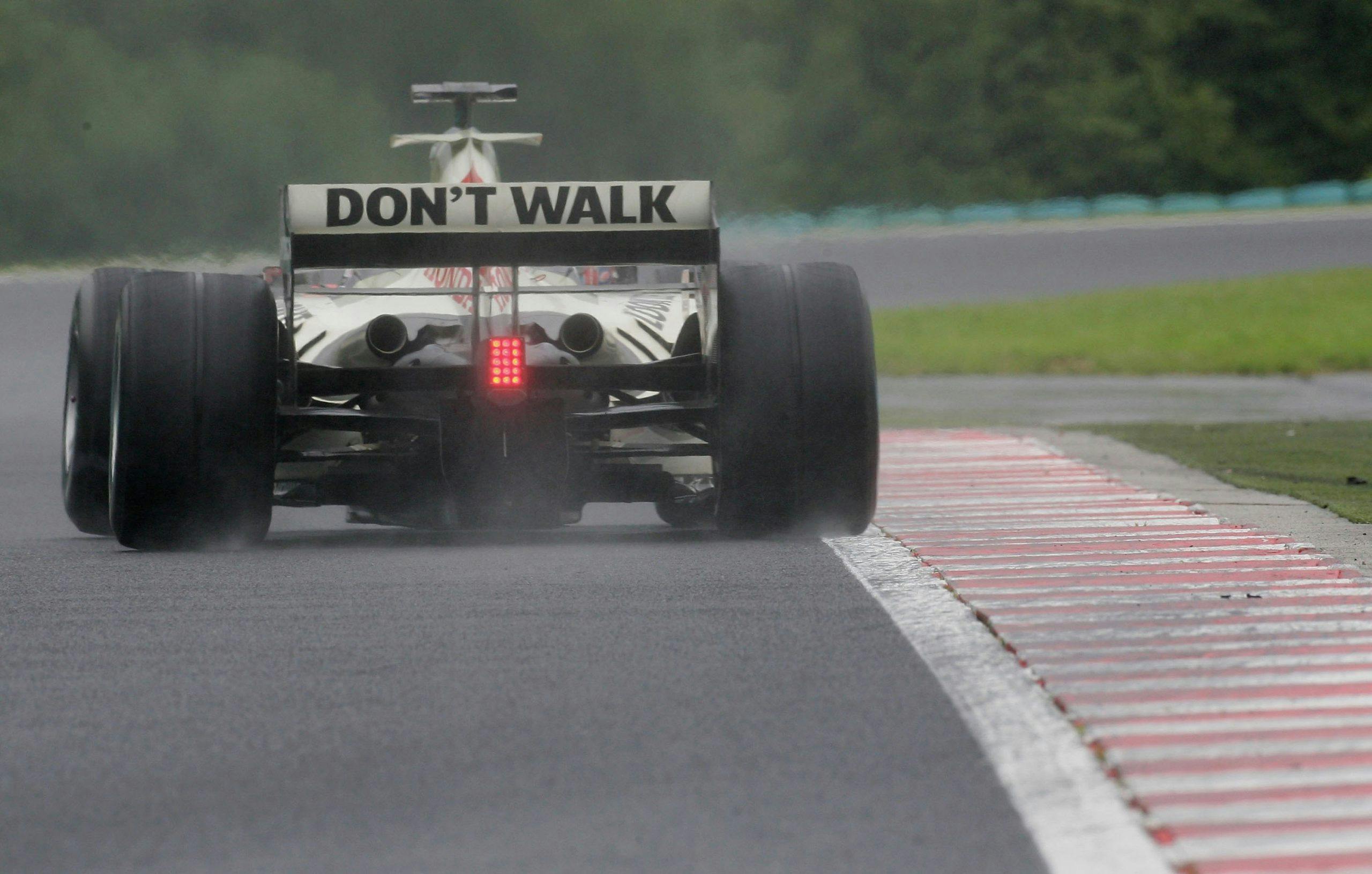2006 Hungarian Grand Prix: Honda’s surprise victor
As Jenson Button sat on the starting grid in Hungary, he might have reflected on another opportunity to win his first grand prix slipping away.
A triumph from 14th on the grid comes with incredibly long odds, particularly around the tight twists and turns at the Hungaroring—a notoriously tricky circuit with minimal passing zones, on the outskirts of Budapest. Additionally, there was stout competition in front of his white and black Honda, that afternoon.
Among the 13 competitors in front of the Briton, there was the identical team car of nine-time grand prix winner Rubens Barrichello, seven-time world champion Michael Schumacher, and Renault’s three-time race winner Giancarlo Fisichella. Right behind Button, the current world champion Fernando Alonso sat poised in another Renault.
On top of that, no other manufacturer than Renault or Ferrari had yet to win a grand prix that year. And Button’s Honda was hardly a contender. Sure, he finished third in Malaysia. He even started from pole position at the season-opening Australian Grand Prix, leading three laps before his engine detonated. The highlights, though, were sporadic. After six-and-a-half seasons and 112 grands prix, many felt Button deserved a victory for his efforts and those of his Honda team.
To add insult to injury, a ten-place grid penalty for an engine failure before the race had dropped him from fourth to 14th in the Hungary GP starting order.
The weather was the only thing on Button’s side that day. Hungary in August is usually sunny and oppressively hot. In 2006, it was dull and overcast. Then, just before the grand prix, it rained for the first time in the race’s 20-year history. A wet race meant possible chaos. On the starting grid, Button’s Honda teammate chose wet tires. The winless driver felt that was too cautious. He believed the Michelin intermediate was the right rubber for the conditions.

Despite the wall of spray that engulfed the field once the starting lights went out, all but one made it through the opening lap. Jenson made up three places, passing some slow starters. Still, 11th wasn’t much to get excited about, especially when Michael Schumacher had already vaulted from 11th on the grid to fourth on that first lap. And perhaps even more impressive, Alonso rocketed from 15th to sixth, overtaking Button in the process.
“I was a bit more cautious just because this is such a long race and in those conditions … We knew we had a quick car and we didn’t want to throw it away on lap one,” Button recalled.
As he navigated the rain, Button wasn’t losing ground on the leader. He started to realize that he had the right equipment to do the job. His silky driving style was well-suited to the damp conditions, the V-8 in the back of the Honda delivered its power smoothly, and the Michelin intermediate tires were definitely the right choice.

This was confirmed by Button on lap five, when he sliced past Fisichella’s Renault. A lap later he pulled a similar maneuver on Michael Schumacher into turn one. The German struggled heroically with a Bridgestone intermediate tire that wasn’t quite up to the job. Button made it briefly into third place behind Kimi Räikkönen and Alonso on lap 17, dropping back to fourth when he stopped for tires.
It was on lap 26 that things started to turn in his favor.
Räikkönen, momentarily distracted by his team’s chatter over the radio, crashed into a back marker. In the moment of confusion, Button jumped ahead of Pedro de la Rosa. Then, the safety car came out, enabling the debris covering the track to be cleared.
Alonso’s 40-second lead was wiped out in one go. By lap 45, Button—now charging and believing that victory was at least a possibility—had Alonso’s lead down to half a second. As he bore down on the blue and yellow Renault, the pair began trading fastest laps.
A lap later, the cynics thought they had the answer to Button’s speed: He was running light, having to stop to refuel as Alonso ploughed on. In fact, it was Alonso who pit for fuel some five laps later.
Even so, Honda knew the win was far from guaranteed. While Button would have to stop again for fuel and new tires, his Renault rival had a clear run to the finish.
Except he didn’t. Leaving the pits on lap 51, Fernando nearly went off at the first turn, in an uncharacteristic move. TV cameras told the truth. The Renault’s right-rear wheel nut flew off. As the wheel left the car, the Alonso was pitched into a spin and out of the race in the second turn.
Button’s final pit stop went like clockwork. He simply had to reel off the laps. “In a way, it gifted us the victory but looking at it now, it’s actually a shame,” Alonso said. “I think we would have had a great race.”

It was Honda’s first Formula 1 win as a chassis and engine manufacturer since 1967. For Button, it had taken 113 attempts, but he’d finally won a grand prix.
“The checkered flag came around too quickly,” Button later recalled. “I had so much going through my mind the last couple of laps, it just went in the blink of an eye, and I really wish that the race was longer than it actually was.”
Apart from Jenson and Honda’s landmark day in Hungary, no manufacturer other than Renault or Ferrari would win a grand prix in 2006. Let’s hope the 2022 grand prix throws up a similarly unexpected victor.






